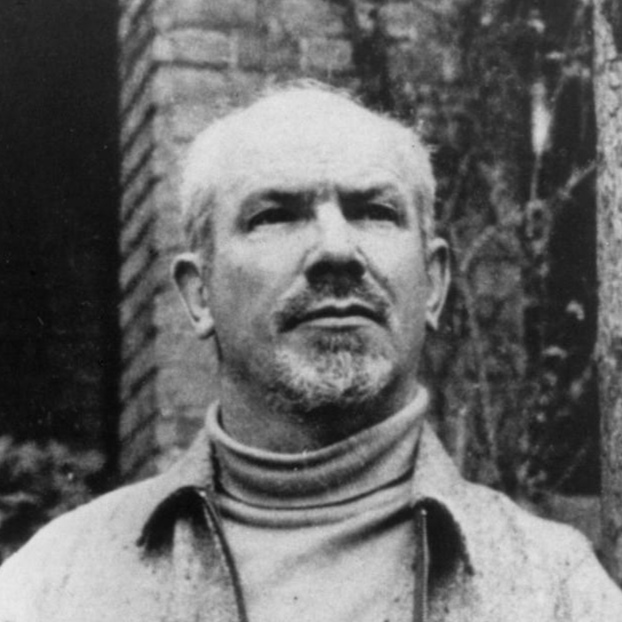As I am suffering high school and my family won’t stop nagging me about graduating and hard work, I’m wondering if I would gain anything useful or I should not bother. (Probably gonna edit this soon)
Or better yet: should I go to a socialist country for college
Moving away for school is a decent way to get away from overbearing parents if that’s an issue. Hard work is key to success, but letting your parents define success for you sucks, especially if you’ve never been given the space to get in touch with your own wants and needs. It’s a feeling of knowing that their success is bullshit, but having no other targets to shoot at.
Yup, my overprotective family really hurt my ability to succeed in college. When you are in a situation where you cannot thrive living at your parents’ home, your first goal should be to find the means to be independent from your parents and manage to be stable for a year or two. Also, find good friends, or risk depression like I experienced. I hated living in dorms, and I wish I started in the college provided apartments as they were much cheaper, didn’t enforce an expensive meal plan, and allowed students to stay year-round. However, I went to apartment dorms in my second attempt at community college, and I didn’t succeed in major part due to a toxic roommate (and needing to walk an hour each way to an exhausting, retail part-time job that paid peanuts). It may be preferable to find an affordable apartment (difficult to come by these days) further away from campus as rowdy young adults can be difficult to live around (maintaining a quiet voice can be difficult, and I accidentally disturbed neighbors when I was singing to myself to help me focus (I have AuDHD)), though one’s mileage may vary, considering the first apartment dorms I moved in at the first university I attended had a decent roommate (I didn’t succeed in my second semester because it took me over a month to move after classes began and led to me being extremely behind on classes). Online college in this scenario is highly recommended because attending physical classes on top of work is very demanding and will cause burnout.
Education and hard work really matter. A lot. If you’re intentional about where to apply them.
We need to work smarter and harder than everyone else in Capitalism, to push the world forward.
We fight for less work, and less exploitation for everyone, but we have to know we need to work harder, to study harder, to communicate better, to risk more, so that we can bootstrap everyone out of the capital.
It is important to learn how to make oneself valuable, though. To understand the rules of the game, and to game it, where possible. To learn to be valuable, and to use that value and negotiate from a position of power.
It you’re in a position to comfortably go to a university, go for it. If you’re not, it’s not an excuse to ever stop studying, or working hard. To find ways to apply our skills and knowledge to the benefit of the working class.
That’s the burden we carry.
Yes, while there are significant problems with the system, education is still one of, if not the largest modifier for personal mobility and life outcomes. You will significantly learn, grow, and change as a person, it is up to you to know what to do with that change.
Be warned. DO NOT apply for random degrees, you will burn out, destroy your mental health, and be miserable. Commit massive research and time to thinking about this question.
Also don’t worry if you don’t have it all figured out right away, it took me till the middle of my second year of college to figure out that I wanted to be a labour lawyer. That epiphany gave me purpose, meaning, and direction, but I still had to work hard up to that moment even if I wasn’t sure where I was going.
On top of that last reason, take a broad range of General Education credits in your first year, this can even be done at local community colleges. Take English, Physics, Statistics, Calculus, Anthropology, Biology, Psychology, Philosophy, literally any meaningful classes that will let you get a taste of everything, even if you have already taken those subjects in high school. It will let you better decide where you want to go, and you will avoid pigeonholing yourself. Plus I promise you those classes will be radically different in college.
Lifetime earning outcomes dramatically diverge for college graduates vs non college graduates.
College is also a fantastic opportunity to GTFO the US for good.
Depends on your circumstances. Imo, if I could go back in time I’d take a year off to work side gigs/volunteer to get a better idea of what I want to pursue and how to go about doing that. I felt really rushed into college and I regret the school I picked.
Also a lot of stress related mental illnesses can pop up in college and that was the case for me and several people I knew. I’m not saying this to discourage you, college is great, but the jump from high school to sudden independence is really jarring for a lot of people. If you are concerned about mental health, consider looking into that.
Then, start with community College because it’s cheap and you can finish most of your core classes, then transfer from there.
If your parents give you shit I recommend making a plan and presenting them with it to show that you will be working on yourself and you have a roadmap
@Lenom@lemmygrad.ml I was very burnt out from high school, and I made it to a 4 year college and was overwhelmed with independence after coming from an overly strict and overprotective household. I failed college multiple times, and it took years before I managed to acquire an apartment and a vehicle. I eventually was able to have a stable environment to do community college online. Now I am going to do online university for Electrical Engineering soon (probably in a year or two, I plan on getting soldering equipment so I can learn to repair devices on the side as a side gig while I am doing college to keep myself afloat), and I have been recently accepted into the program.
If I could go back in time, I would have taken a break for a year or two after high school and focused on getting out of my parents’ home. It is a massive challenge to be independent, and this is necessary to master because college is way more intensive than high school. You will likely be pulling all-nighters, though that may be because I still struggle with time management to this day.
College is filled with a lot of bullshit, including ridiculous amounts of coursework, an unreliable way of gauging coursework by credits (I took way too many my first semester, start with 12 credits, please (even after reducing my credits mid-semester, I had to take more single-credit courses to make up the minimum full-time requirement, and they had a similar workload to 4-credit classes, and I had 4-credit classes that didn’t require a lot of work)), professors that will not teach and only give you assignments (especially online), crappy proprietary software and test-systems that will make you fail test questions even if you made the correct answer (looking at you, Pearson), etc.
Also, limit your extra-curricular activities to one or two, preferrably zero for at least your first semester. I was too eager to join many clubs, and then burned out even more, played video games in my dorm, and struggled to attend classes.
My state has a program to pay full tuition for “high demand” fields in community college, which made it possible for me to get a two-year degree. My head was in a better place, especially since your brain doesn’t fully develop until into your twenties. I really recommend online college. It comes with many of its own problems, and the courses are much worse in quality, but if you are an autodidact like myself, you will find better material online to teach yourself anyway. Online college makes it more feasible to work to support yourself as you usually don’t have to attend classes at a specific time (I had to attend one online class meeting during work for JavaScript, but the rest of my classes were online-only with assignments due each week (not self-paced)).
Be prepared to be disappointed if you do not acquire a job you hoped to achieve with your degree. To be honest, I may have a better chance getting an entry-level job in software development if I wasn’t building my Gentoo system from scratch and instead focused on practicing programming and making git repositories of web applications to show off to employers. I have spread myself very thin trying to customize my machine (biting off more than I can chew with my limited experience) while learning to be a jack of all computer trades (because I am paranoid about security and privacy, and often the alternative to surveillance tech is to DIY) on top of managing life responsibilities and working with PSL. But I am doing what I love to do, and I have always been interested in open source computer hardware and low-level programming. My hope to get a software development job to make ends meet before I went back to my true dream career pursuit was unfortunately not feasible, especially since I am competing with many experienced developers in the midst of massive tech layoffs post-covid. By the time I would get a software development job with a two-year degree, I would have invested so much time to make restarting from scratch to go into electrical/computer engineering much more risky. Plus, if I waited to go to college in the next 10-20 years, it may become $100-200K per year, which is why my focus is getting back into a 4-year degree as soon as possible.
If and when you do college, research reviews of colleges, and look up college experiences from students online (including reddit). I learned, for my university, the general education classes I will be taking first are typically done with many students in each class with a professor as a moderator that will not let you reschedule tests even if you plan in advance and even if you have to help take your family to a doctor’s appointment that day. The coursework in the first classes I will be doing is much less than the mid-tier classes, and it lightens a bit at the end, so I will likely take an extra class or two beyond the 12 credits for my first semesters, do strictly 12 credits for the middle semesters, than take maybe an extra class in the last semesters. Because of the side gig I want to do, I may just do only 12 credits for each semester for the entire degree. Also, I can expect lessons and assignments to have very contradictory instructions, and this is a frequent experience in software related fields. Ask or research online about specific classes when deciding your course schedule as students can give feedback on whether a course is bad or too much work in combination with your selected classes in the same semester.
And expect some hilariously liberal education, especially for the economics or business class that is shoved into your degree as a requirement.
Forgive my stream of consciousness and run-on sentences, lol, I typed this from my phone.
Yeah, go to college if you can. However I would advise you against choosing any degree just for the sake of having a paper that says you passed college, and instead to think carefully what do you want to study and dedicate your life to.
Definitely do it. Education is important regardless of what you see yourself doing with your life. Obviously you don’t need to pay to learn stuff, but good programs/professors can seriously broaden your perspective forever. Plus you’re going to meet tons of people along the way.
Don’t get me wrong, your time and money would be equally well-spent just buying a one way ticket out of the country and backpacking around for as long as you can. These also aren’t mutually exclusive.
Money stops a lot of people from doing shit they really, really wanna do. Experiences are priceless and money isn’t fucking real, anyway.

If you’re asking me, my general answer is yes, go to college.
What would you study?
And what are you struggling with in school, the academic side (no need to answer if you don’t want to)?
I’ve written other answers to similar questions:
This is some really solid advice. Lurkers and OP, I recommend these links.
Yes. Absolutely.
My big sis said that she won’t go because college here is too frustrating, takes a toll on mental health and worse than high school, besides situation in the country is so shitty that even college doesn’t help here and even people who finish it end up with normal low time jobs.
So it depends in which country you are, you decide but I don’t have to say anything positive about it as far as I know.
I also struggled in high school because I just couldn’t bring myself to care about half the subjects. In university I got to choose my own degree and classes and I went from being an incredibly mediocre student to straight As.
If you want to go into academia then absolutely yes. It’s still worth it if you’re not but definitely go to a community college and find something low intensity that you’re interested in. I’m currently doing a physics bs with hopes of getting my PhD and this shit is fucking hard and probably not monetarily worth it at all.





